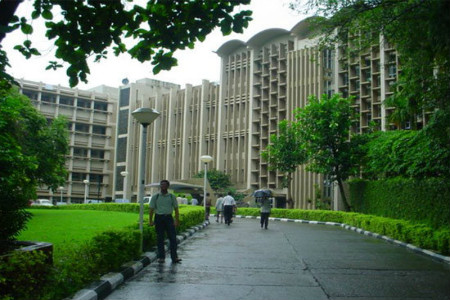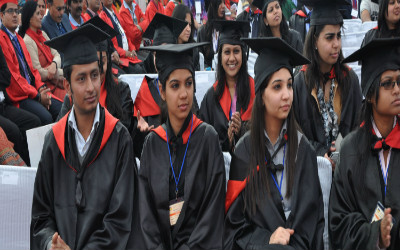

To address quality issues among the talent pool of newly qualified engineers who are coming out of the institutions, the government has introduced a mandatory exit examination in their final year.
This will apply to engineering students of both government and private institutions. The performance in the examination will determine their employability as the scores will be shared with prospective employers.
There had been concern over the falling standards of engineers coming to the employment market. The government is hoping that the proposed test will reveal the “attainment levels”. The All India Council for Technical Education (AICTE) is expected to work out the nitty-gritty of the proposal.
Problem Of Non-Technical Skills
“There are many reports about the poor employability of engineering graduates, which is a direct reflection of their non-technical skills. It will be commendable if IITs can impart such skills to the bright engineering graduates of our country. Mere assessment is a good step, although it will not be adequate if it is not backed by a curriculum to impart these non-technical, life skills such as critical thinking and soft skills,” said Narayanan Ramaswamy, partner and head of education and skill development with KPMG India.
The proposed test is in response to the feedback received by the government about skewed standards in engineering education. It is estimated that India produces seven lakh students annually from more than 3,000-odd registered technical institutes. Data shows that only one-fourth gets a decent job and 70 percent faces low employability because of lack of requisite skills sought by the market.
“We want to check their aptitude, skills and critical thinking and not just theory. The exit examination will be focused entirely on that. This will give us a feedback on the teaching standards at these institutes too. We will be able to suggest remedial measures as it will help in identifying the colleges which require teacher training etc.,” said a human resource development (HRD) ministry source. The proposed test will be on the lines of Graduate Aptitude Test in Engineering (GATE) examination. “It will help assess standards of education in each institution and we will be able to make changes accordingly,” said the source.
GATE is an all-India examination that tests the comprehensive understanding of various undergraduate subjects in engineering and science. Conducted jointly by the Indian Institute of Science and seven Indian Institutes of Technology GATE scores are used by IITs for their admission in M.Tech courses.
Although students will get their B.Tech degrees from their institutes regardless of their performance in the exit examination, participation in the examination would not be voluntary as is the case with GATE, said sources.
Results of the exit test would be shared with institutes to help them devise techniques to plug the gaps under an AICTE regulation so that all institutes follow it. Those who do not comply ma face loss of approval status.
Rankings Of Colleges
Already the HRD Ministry has released an India Ranking Report 2016’ of top universities, management, engineering and pharmacy colleges. The first-of-its-kind indigenous ranking for higher education institutions follows India’s glaring absence in global rankings creating a perception that Indian universities and colleges are not competitive.
The ‘India Rankings 2016’ analyzed 3,500 private and public institutions and were ranked by National Bureau of Accreditation (NBA) based on five criteria — teaching and learning resources, graduation outcome, perception, outreach and inclusive and research productivity. All institutions were judged based on self-disclosure of information.
The IITs have occupied the top 10 best engineering colleges slot with IIT Madras coming at number one with a weighted score of 89.42, followed by IIT Bombay, IIT Kharagpur, IIT Delhi and IIT Kanpur with scores of 87.67, 83.91, 82.03 and 81.07, respectively.



